The Baader-Meinhof Of BUSTER SCRUGGS: A Definitive Ranking
Rating: 💀💀💀💀💀💀💀💀💀💀
I recently bought a Kia Soul. If you are unfamiliar with the Kia Soul, just picture the body of a Lamborghini with the engine of a Mustang and the interior of a Maybach.
If you ever find yourself in the fortunate position in life to acquire a car with the performance and sex appeal of a Kia Soul, one thing you will notice immediately after the purchase is just how many goddamned Kia Souls there are on the road.
One question that will come to mind is why you didn’t notice this before your purchase. This is called the “Baader-Meinhof phenomenon” or, less pretentiously, the “frequency illusion”. The working theory is essentially that our brains have a bias towards picking up on and establishing patterns.
The more interesting questions come next:
“Did everyone start buying Kia Souls just now?”
“Have there always been this many Kia Souls?”
“What does my Kia Soul say about ME?”
“Did I buy my Kia Soul as part of a targeted marketing push to some demographic that comprises the larger part of my commute’s population?”
“Is this a sign?”
Coen Brothers movies, and specifically their latest anthology film created for Netflix, The Ballad Of Buster Scruggs, weaponize the frequency illusion by begging the question of inherent meaning in patterns.
The problem this creates for someone attempting to analyze one of their films is that it can be hard to tell if they are utilizing a specific pattern for comedic effect, to convey symbolic meaning, or both.
Sounds like a daunting task but I think I’m up for it.
Let’s start by arbitrarily ranking these things.
Number 6: Meal Ticket
Standout Performance: Harry Melling as “Artist”
Best quote: “Look on my works, ye mighty, and despair.”
He has no arms, no legs, and no control of any aspect in his life. He is carted from town to town regurgitating the same classical monologues for half-bored townsfolk who lack anything else to distract them from their lives. Eventually he is discarded for a more profitable performer: a chicken who does math.
Cool, so the chicken is definitely Marvel movies right? And Artist is the Coen Brothers? That’s definitely putting too fine of a point on it. The intended interpretation is likely broader and centered on the futility of… art? There’s a character credited as “Chicken Impresario” in this one.
Number 5: All Gold Canyon
Standout Performance: The most incredible CGI deer I’ve ever seen.
Best Quote: “Goodnight, Mr. Pocket.”
I feel like I’m stabbing myself in the back by ranking this so low. It was my clear favorite the first time I watched this movie. But that was really a Tom Waits* technicality.
All Gold Valley is a quick little story where an old prospector comes to a valley and, after much toil, finds some gold. A young man wearing all black shows up and shoots him in the back. The prospector survives, kills the young man, and leaves with his gold. The tale itself is bookended by the local wildlife. First, their tranquility is interrupted by the arrival of the prospector. Then, after his departure, they return.
Coen Brothers movies often have characters frantically pursuing some low-stakes capitalistic venture. It’s important for the nature of the venture to be both meaningful enough to believably drive the character to bad decisions, and meaningless enough to operate as comedic foil to the existential angst of the hero.
It is in this tradition in which Prospector utters the pillow talk, “Goodnight, Mr. Pocket,.” to the pocket of gold he is in search of. But unlike other Coen heroes, Prospector never becomes his own undoing. Perhaps it is his simple nature that saves him. The Coens hate scheming. Perhaps it is his love of owls? The owl is VERY present in this thing but unfortunately offers us no dialogue to explain herself and what exactly the fuck she means, or knows, or IS. Probably just an owl.
“It didn’t hit nothin important!” exclaims the prospector examining his new exit wound and washing the blood away with river water. Then he looks at the sky and repeats himself. He has been granted survival and his nugget of gold. He may enjoy the rest of his days as a rich man. But how many days will that be?
Number 4: Near Algodones
Standout Performance: Stephen Root as “Teller”
Best Quote: “Can I have your horse?”
James Franco’s character named Cowboy begins his series of comedic mishaps by staring at a little bank building in the middle of nowhere. It’s quaint, unassuming, and vulnerable. This should be easy.
But of course, Cowboy then rides a hilarious rollercoaster of death. From Stephen Root’s unintelligible Teller (“That pan-covered son of a bitch back at the bank don't hardly fight fair in my opinion.”), to a Comanche war party dispatching of his arresting posse before laughing at his predicament and carrying on, to an unaware horse that is very determined to get to that next patch of grass, Cowboy pays for his greed with extended doom and furtive moments of torturous hope.
But the end is something a bit more. The run order of the tales in Scruggs is important as hope and doom are leveraged frequently as equally oppressive forces. When the now- blithe Cowboy spots the woman in blue at his final hanging, we feel for a moment as if there must be more to this story, as if perhaps we’ll see some more hijinks. But then the floor is dropped out from under our feet along with Cowboy’s and the cut to black is accompanied by a sound that feels like getting punched in the stomach.
Number 3: The Girl Who Got Rattled
Standout Performance: Zoe Kazan as “Alice Longabaugh”
Best Quote: “Alice can be very attractive and charming when she has a mind to be.”
Does the dog die?: No.
The penultimate and longest tale in the film opens with a dinner table scene of northerners discussing whether or not the nervous system has tendrils that run throughout the body and if so, whether that nervous system could cause someone to have a cough. A wonderful dinner table discussion.
This works well as a thematic launch into a story about a woman whose own nerves lead her to bring about her own demise.
It’s clear, however, that these nerves are not conjured up at random from some internal defect. Her family is quite annoying and very confident about everything they say. Through the editing choice to hold on Alice while her charm and attractiveness are discussed, we are put in her shoes. We cannot control life. We can only listen to other’s speculations.
Perhaps that is what makes Billy Knapp so charming. He doesn’t pretend to know more than he does. He embraces the mystery of life. “Uncertainty. That is appropriate for matters of this world. Only regarding the next are vouchsafed certainty.”
This is about as Coen Brothers a line as you can get. Only a fool seeks to sort the universe into a sensical order.
(Think: Richard Kind’s childlike character, Uncle Arthur, screaming about “THE MENTACULUS!” in A Serious Man. He was driving himself mad trying to create a “probability map of the universe.” The Mentaculus would be, upon its improbable completion, a religious text of a sort. At least it would be if its creation story were included in the volume. Religious texts are generally some combination of myth and doctrine, interwoven to create a web of faith greater than the sum of its parts.)
And so Mr. Arthur gives Alice a short monologue serving these two purposes that will bring about the end of her life: “If they catch you, it won't be so good. After they take off every stitch of your clothes and have their way with you, they'll stretch you out with a rawhide, and then they'll drive a stake through the middle of your body into the ground, and then they'll do some other things. And we can't have that…”
We don’t have time (read: energy) to unpack all of that right now. But suffice it to say, there were two types of folks in the old west: those who were demonized and those who were lionized.
Number 2: The Ballad Of Buster Scruggs
Standout performance: Tim Blake Nelson as “Buster Scruggs”
Best Quote: “I assume you meant West Texas Tit, on account of that particular bird’s mellifluous warble.”
The film’s titular opening segment is a whirlwind of style and substance. There’s great music, surrealist flare, undeniable camera work, garish violence, and some of the funniest character driven comedy the Coens have ever produced.
The segment opens with a mostly true to form rendition of the classic country song, “Cool Water”. It’s a peppy little song about a man and his horse lost in the desert seeing mirages.
Buster Scruggs sees himself as many things but the world around him never seems to recognize him the way he pleases. He desires to be known most by his nickname “The San Saba Songbird” but his wanted poster has labeled him simply as “Misanthrope.”
“Misanthrope? I don’t hate my fellow man, even when he’s tiresome and surly and tries to cheat at poker. I figure that’s just a human material, and him that finds in it cause for anger and dismay is just a fool for expecting better,” Buster says to the camera, feeling an awful lot like Sam Elliott in The Big Lebowski.
The Coens seem to be referencing themselves here in two ways. They have been deemed misanthropes in the past. Buster’s declaration rebukes and affirms that notion with a dry wit that is both typical and finally realized.
There’s something about the embrace of surrealism that feels like a more direct form of communication than the duo have ever utilized in the past. Every choice is noticed -- on purpose -- which forms a dialogue between director(s) and audience.
Buster, who wears all white, is eventually shot dead by The Kid (played by Willie Watson). The Kid wears all black and also sings really good. “I’ve been hunting you up on account of they say you’re the one to beat, singing and slinging guns.” The Ballad Of Buster Scruggs isn’t really a morality tale as much is a lesson in inevitability. Buster and The Kid sing a duet together (the instant classic, “When A Cowboy Trades His Spurs For Wings”) with lyrics that like this:
Yippee-ki-yi-yay
When the roundup ends
Yippee-ki-yi-yay
And the campfire dims
There’s a great little shot during this song showing Buster floating above The Kid’s shoulders, his new angel wings flapping serenely as he ascends to Heaven.
Earlier, I mentioned the enigmatic and overly present owl in the chronologically forthcoming segment All Gold Valley. This owl is most obnoxiously and subtly interjecting herself over the shoulder of the black-clad Young Man right after he has shot Prospector in the back. Young Man sits down to have a cigarette and over his shoulder the owl can be seen flapping her wings as she ascends to her nest.
Does this help me understand the owl? No.
Number 1: The Mortal Remains
Standout Performance: Chelcie Ross as Trapper
Best Quote: “How would I know? I’m only watching.”
It’s a bottle episode! The enigmatic final chapter of the anthology takes place almost entirely in the stuffy confines of a nonstop stagecoach bound for some ostensibly allegorical terminus. Five travelers pass the time by exchanging soliloquies about human nature, the knowability of other people, and the existential angst of the dying.
Does that sound like fun? It is kind of fun. There’s a rollercoaster quality to a well done bottle episode. You start off thinking you are watching an introductory scene. Then, as time passes and the sun slowly sets you realize that you are stuck. Stuck with the Trapper, whose trap never shuts. Stuck with the Englishman, who’s a little bit nuts. Stuck with the Frenchman, who waxes of lust. Stuck with the Lady, whose husband she trusts. And though his living is earned through his violence, stuck with the Irishman, who either sings or sits in silence.
Englishman and Irishman both sing songs for their fellow passengers. Englishman opens the segment with a jaunty little number about a lost lover, “Has Anybody Here Seen Molly?” This is an altered version of the British song, “Has Anybody Here Seen Kelly?” Why is it altered to “Molly?” I don’t know.
Later on, Irishman sings “The Unfortunate Rake” (which is called “The Unfortunate Lad” in the soundtrack). It’s a gorgeous song about dying of syphilis.
And so the opening and closing tales of the film are both opened and closed by songs about being lost and dying respectively. I find it fitting that the last two songs are sung by the two self professed “reapers” who ferry souls to the afterlife. Ponder for a moment, the fact that one of the Coen Brothers wrote this line for the Englishman, “Yes, well, we’re a duo, a tandem, a team. They’re so easily taken when they’re distracted, people are. So, I’m the distractor with a little story, a little conversation, a song, a sparkle. And Clarence does the thumping while their attention is on me.”
It’s what they’ve always done. Entice (or taunt) the audience with humor, music, and incredible imagery. Then sneak some fatalistic, humanistic, struggling existentialism in there like a heart-worm pill in a spoonful of peanut butter.
Again, here are the credited names of the characters in The Mortal Remains: Englishman, Irishman, Frenchman, Lady, & Trapper.
It reads a bit like a joke, but hasn’t everything so far? And what the fuck is the point of jokes anyways?
Put enough drinks in any person who considers themselves a comedic artist and they will regretfully reveal to you that their philosophy on comedy contains the word truth in it. This is a shameful admittance as it implies some level of considering oneself a serious entity capable of “speaking truth to power”.”
But, I’m all about that shit. I’m at least all about the attempt. And I don’t think there’s anything in this world more powerful than the unknown. That or death.
I don’t know.
*I just want to take a second to put this into the universe: In The Imaginarium Of Doctor Parnassus, wherein Tom Waits plays The Devil, he arrives via horseback to a temple in the mountains where a bunch of monks are placing too much import on their own art and he is wearing this crazy ass wooden eye covering thing with little slits in it to see through. I want one of those things. I want one and I want to wear it on my birthday. Thank you.

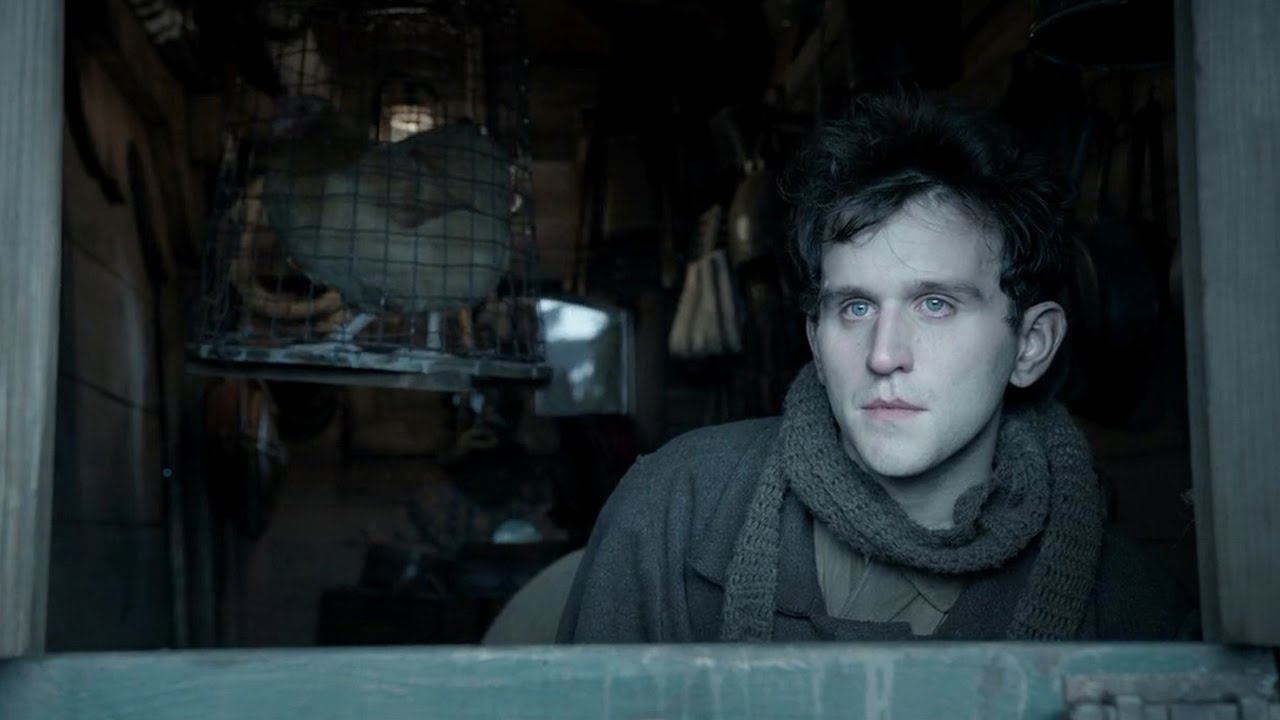
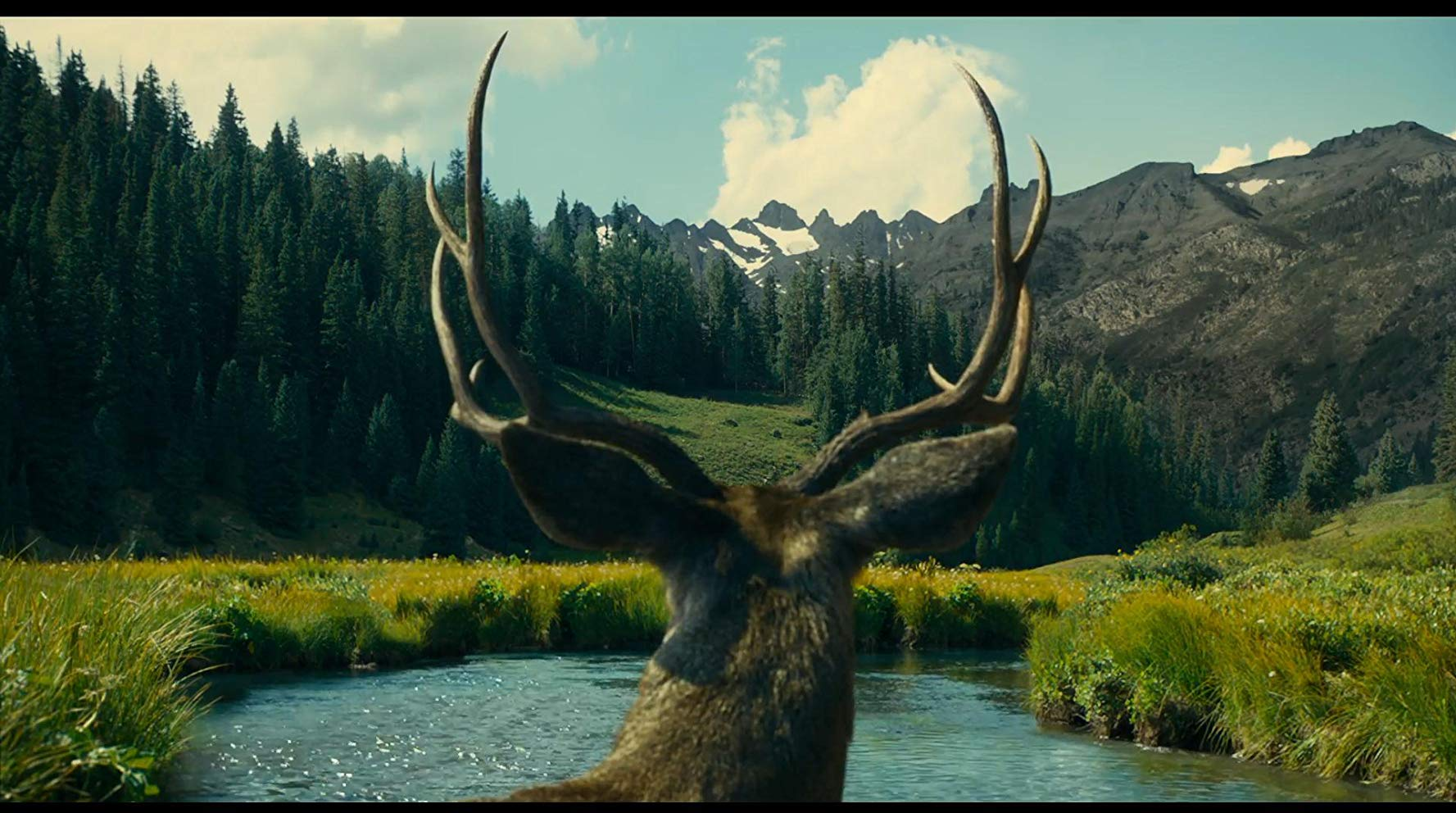


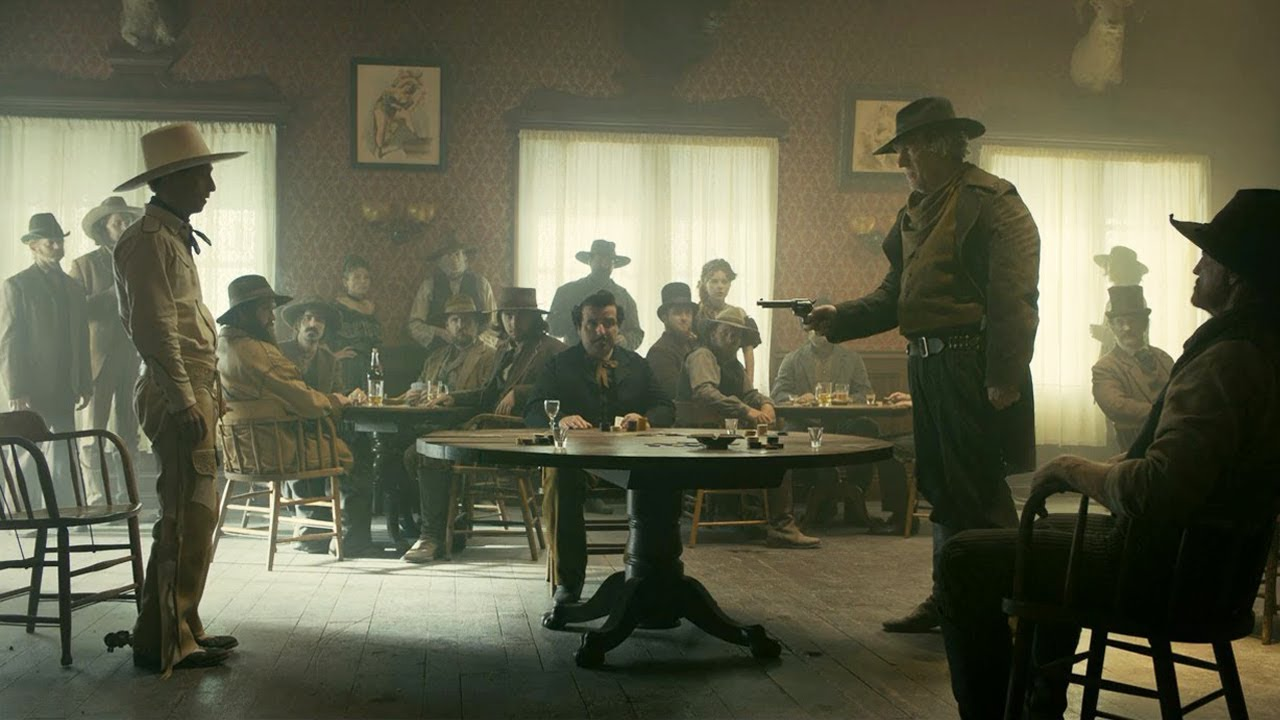
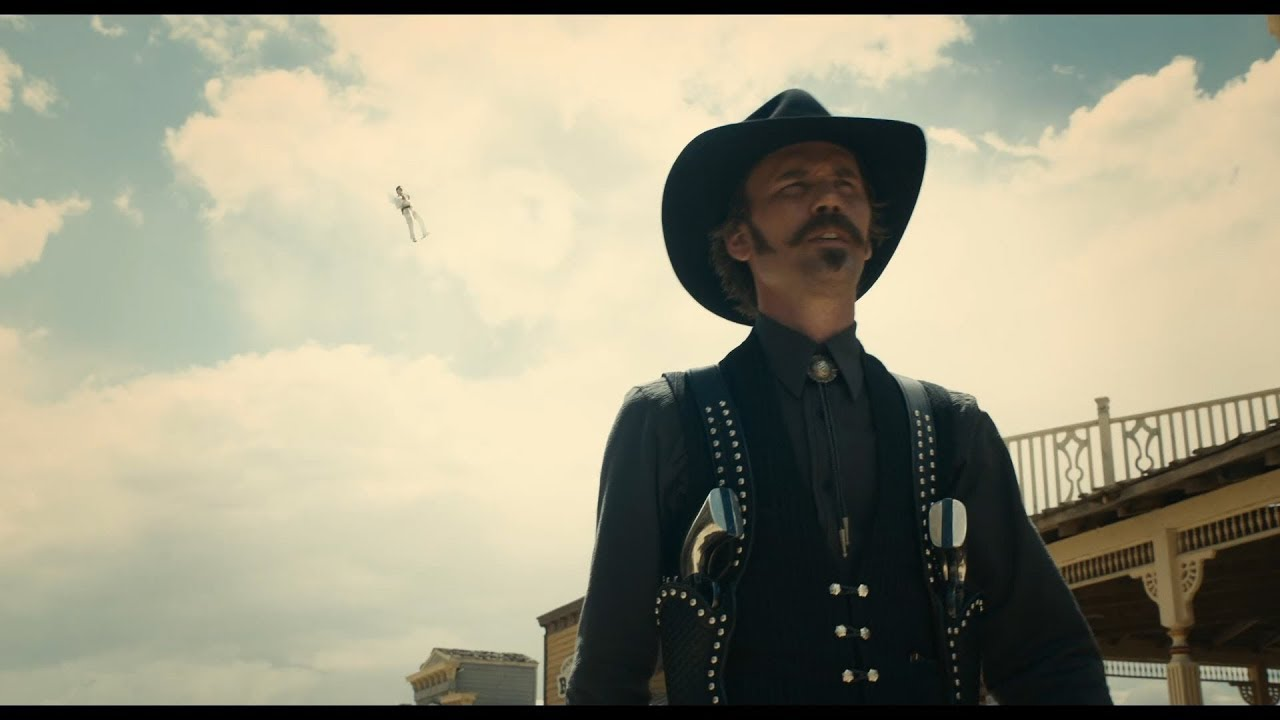

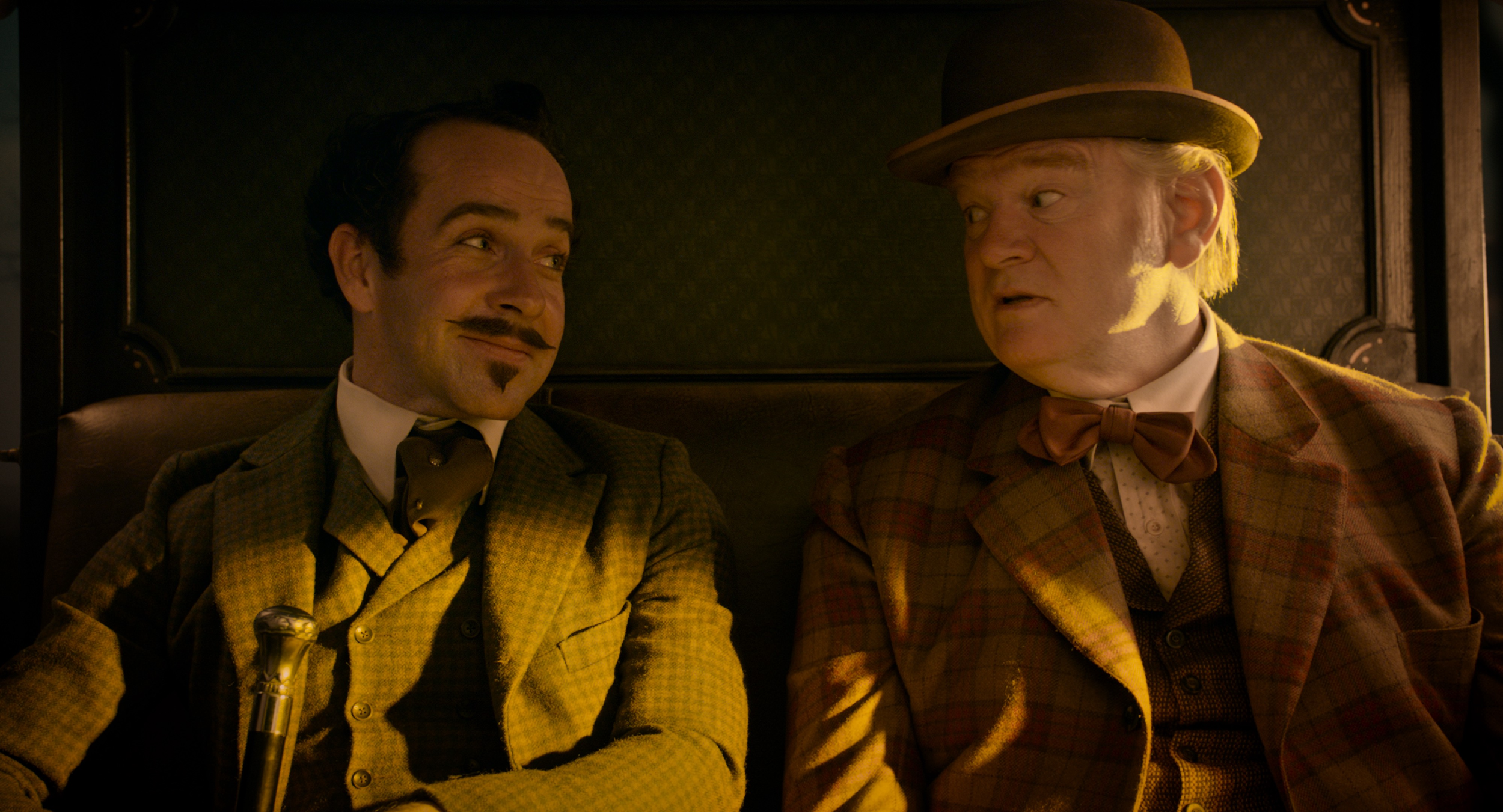
A Courageous Little Kitchen Cube